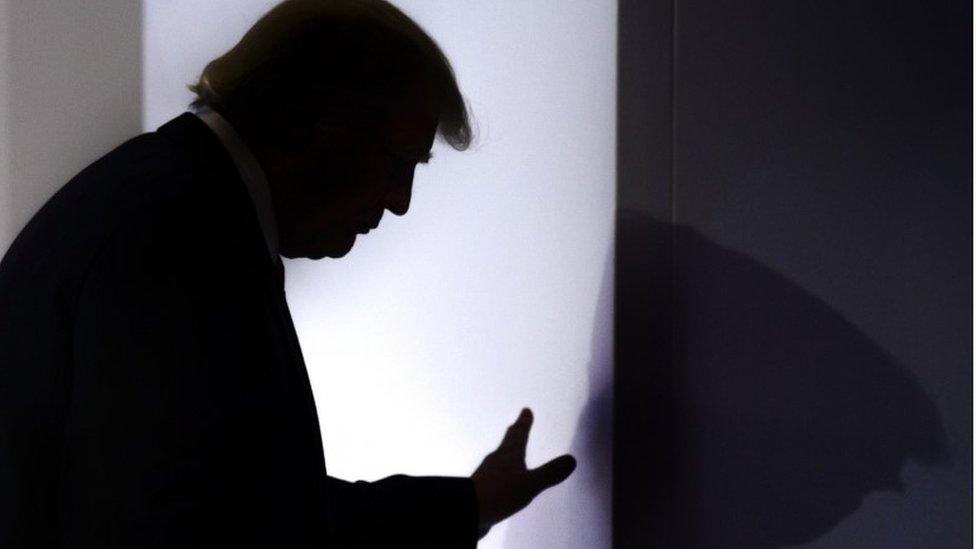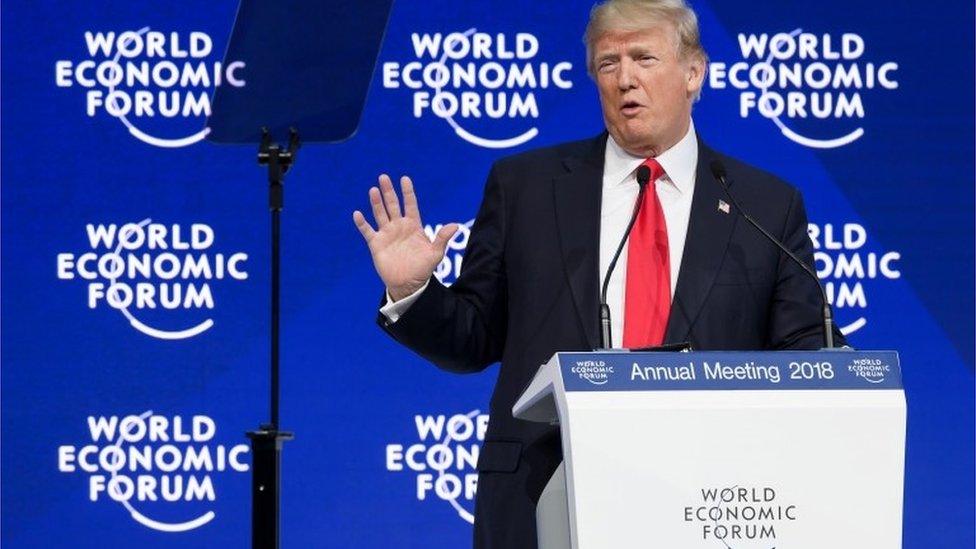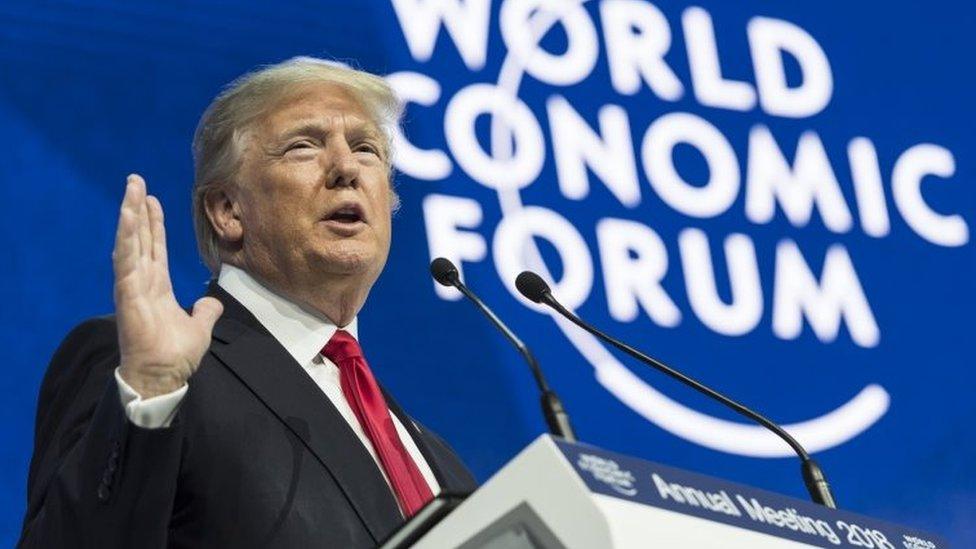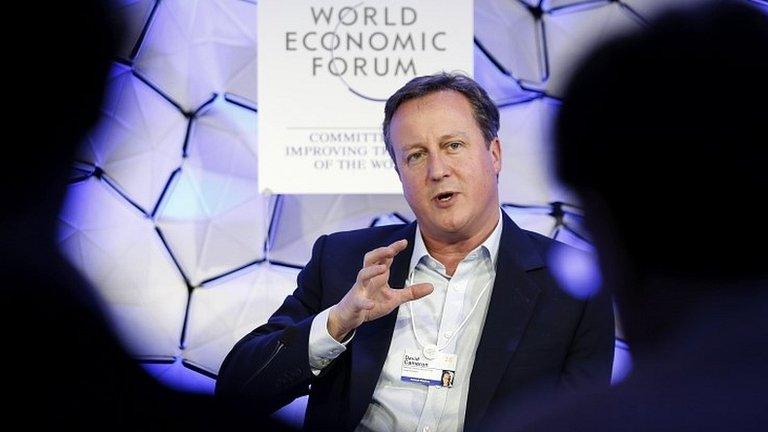Donald Trump came to Davos with a mission to reassure
- Published

Few people knew what to expect.
Would this be belligerent Trump - wagging his finger at the global elite about how divorced they were from reality, from what people really want?
Or would this be conciliatory Trump, setting a different tone? We heard the second.
The president touched many of the World Economic Forum's erogenous zones. But many were not quite sure how to take it considering the pit bull they were expecting.
He talked about the voices of the forgotten - a constant theme here among the "super-haves" who are coming to a creeping realisation that the system has to change if faith in the capitalist system is to endure.
He talked about economic success being about more than the sum of production, it was about the "sum of its citizens".
Businesses, he argued, had to remember their obligations to the people who worked for them.
Critics will pick at the easy holes. For example, on those income tax cuts it's the wealthy who will gain more.
And the business tax cuts are far larger than those for middle-income Americans.
Mr Trump said that America First did not mean America Alone. It was the key line of the speech.
Fair trade, not trade war
And it was a message echoed by other leading members of the White House power pack here, including Gary Cohn, the president's chief economic adviser and head of the US National Economic Council.
This is all about trade and the US approach.
The fear was that America under Mr Trump would throw up a series of trade barriers, increasing protectionism at a time when most government leaders at Davos - Narendra Modi of India, Justin Trudeau of Canada and Emmanuel Macron of France - were preaching the gospel of globalisation.
But today we heard a more nuanced manifesto. America, Mr Trump said, did not want a trade war, it wanted fair trade.
Which may come as a surprise to countries like South Korea, smarting this week following the imposition of tariffs on US imports of solar panels and washing machines.
Mr Trump's argument is this:
The rules of the free trade world were built after the Second World War when America's economic interests were rooted in the successful development of other countries' economies.
These countries then became eager customers for American products.
That equation has changed. China is a much more powerful economy.

The Asian emerging markets, South America and Europe all now have much more muscular dogs in the fight for global trade.
Mr Trump said state planning, intellectual property theft and industrial subsidies were the new weapons of trade wars - and used against America.
"Fair and reciprocal trade" is the new US mantra.
And if the administration feels it does not receive such treatment, the president will act - for example, by passing an executive order pulling the US out of the Trans-Pacific Partnership, the 12-nation Asian trade deal.
Mutual benefit
It's a message that has not fallen on stony ground here.
"I don't think it's inappropriate that we re-look at some of the treaties that were so asymmetric," Larry Fink, the chief executive of investment company BlackRock, told me.
"Some of these countries now are very strong and very developed. It's going to be a long game.
"The world is benefitting by global trade and we need to find ways of creating more global trade to benefit more humanity worldwide," he said.
America is still a trading nation, one which gains far more economically from globalisation - world trade - than it does from protectionist measures.
And that brute economic truth means that Mr Trump has to play a different tune here - to the business leaders and investors who decide where to place their cash - than maybe to the left-behind voters of the US rust belt.
So the president said that America was ready to do bilateral deals that would be "mutually beneficial".
He even suggested a re-engagement with the TPP. On trade, this was Trump 2.0.
The politics might have been angry in the past, but today, economic reality softened the president.
- Published26 January 2018

- Published25 January 2018
- Published24 January 2018
- Published22 January 2018
- Published24 January 2018
